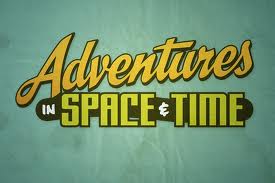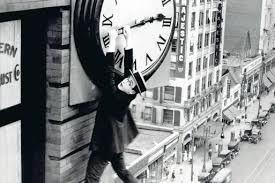Does Time Exist?
 KOOKMIS-ENOOG (Our Grandmothers) on Indian time
KOOKMIS-ENOOG (Our Grandmothers) on Indian time
Our two peoples’, Indians and Euro-Christians, world views are as different as night and day.
One excellent example of this fact is the concept of time. Time such as past, present, future, hours, days, weeks, months and years. Time is a Euro-Christian, manmade concept and construct.
To the Euro-Christian the universe is a “block universe”. One imagines a square box that is divided in three sections. One section represents the past, another the present and the third the future. All three sections coexist at the same time.
To the Euro-Christian, time can be spoken of as changing, slowing down or speeding up. Objects and events exist in portions of time: they can be in the past, in the present or in the future.
It also depicts the future as bounded, that is, there will come a “time” when the boundary is met is met and confronted. The Euro-Christian idea of “progress” came in because the present is making progress in its movement toward a goal – the future.
To our people there is no such manmade concept or construct of time as put forth by Euro-Christian. Instead we were given, through our original instructions/traditional teachings, the concept of an infinite universe, an infinite Creation, an infinite Creator. Time is merely a measure of motion: of the motion of the sun, starts, and moon through the sky, of changes that are visible and can be predicted.
Kookmis-enoog, our Grandmothers, taught us that the present generation are co-creators of future conditions. We do not exist in a preordained universe. Our actions in the “now” bring the “future” universe into existence.
From these teachings one could imagine a ball to which one adds a layer and each layer is a “present” which is laid over a steadily growing “past” supporting the present.
 Since we are participants in a process of motion and change, we know that we can affect the future. If we kill off all of the buffalo, polar bears or chop down all of the trees, then we will live in a world without buffalo, polar bears and trees. There is no glorious “future” out “there” waiting for us to arrive. We build the future through our present actions. We do not, however, “build” as gods but as participants. The universe is a process, of which we are a small part. In this process the goal is always toward balance and harmony. Our survival depends on maintaining balance and harmony.
Since we are participants in a process of motion and change, we know that we can affect the future. If we kill off all of the buffalo, polar bears or chop down all of the trees, then we will live in a world without buffalo, polar bears and trees. There is no glorious “future” out “there” waiting for us to arrive. We build the future through our present actions. We do not, however, “build” as gods but as participants. The universe is a process, of which we are a small part. In this process the goal is always toward balance and harmony. Our survival depends on maintaining balance and harmony.
In these two world views, the universes that Indians and Euro-Christians inhabit are two different “worlds”, parallel universes, so to speak. We occupy the same “space” and the same “time” yet we live in two different “worlds”.
All My Relations,
Dan Ennis
